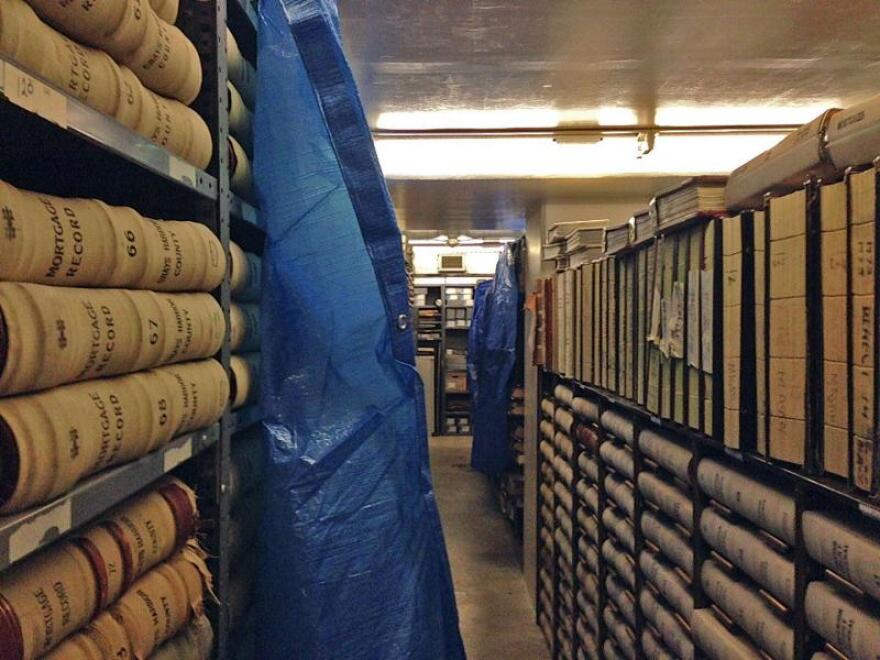A hallmark of democracy is transparency, a way to see inside the government so we know what it’s up to. To that end, there’s the federal Freedom of Information Act. And in Washington state, we have something similar called the Public Records Act.
The state’s open records law was passed by a citizen’s initiative in 1972. Similar “sunshine laws” were being enacted all over the country, an outgrowth of the counterculture movement pushing for more openness in society and government.
Washington's Public Records Act Is One Of The Strongest In The Nation
With some exceptions for things like school records, Washington's Public Records Act pretty much lets you see any document produced by any government entity, whether it’s your local local sewer district or a state agency.
Alyne Hansen, the public disclosure administrator in the city of Kent, says she spends her day processing public records requests, most of which come in through the city's website.
There are lots of requests for things like police incident reports, which require just a one page response. But more complicated requests can require boxes of materials to be compiled. Hansen says it's not unlike the grocery store.
“Some people come in with a simple request and I call that the 15 items or less line, where we can get them out simple or fast. But other people have 15 shopping carts that have to be checked out,” Hansen said.
The big requests can involve a lot of other departments and staff just to process.
Anyone Can Request A Record
The Public Records Act requires governments to respond to requests in a timely manner. But probably the most important thing you need to know about the Public Records Act is that anyone can request records for anything or for any reason. You don’t even have to give your name.
And if you don’t think the government has handled your request properly, hasn’t given it to you in a timely manner, you can sue.
Does The Public Records Act Need An Upgrade?
Some local governments say, while they support transparency, the Public Records Act has gotten too unwieldy. Recently, city officials testified in Olympia on two bills that would add flexibility to the act.
“Technology and the increased volume and complexity of requests are undermining the Public Records Act and our efforts to fulfill its requirements,” Pat Johnson, mayor of the Pierce County town of Buckley, told a legislative committee.
The problem, as Johnson and others see it, is when the Public Records Act was passed things like email and text messages didn’t even exist. They say cities can be overwhelmed by requests and the need to archive more and more kinds of records. Among other things, they want the right to limit overly broad requests. Open government advocates remain skeptical.
Unintended Consequences Of The Public Records Act
But even some strong advocates say there can be unintended consequences of the Public Records Act.
Take police body cameras, for example.
“They could be recording inside people’s homes and in instances where people are victims of domestic violence," said “Shankar Narayan, ACLU of Washington director of technology and liberty.
Narayan says anything a police officer records in a day could become part of the public record under the act, meaning anyone could potentially have access to it. It's the reason the ACLU is recommending a go-slow approach in the adoption of police body cameras. A state task force is also wrestling with the issue.
Open Government Advocates Say Public Records Act Remains A Way To Curb Abuse Of Power
Attorney Michele Earl-Hubbard has spent much of her career suing governments for failing to comply with records requests. She represented the Seattle Times in its lawsuit over access to state records about lead poisoning on gun ranges. She won the case.
“After we got the records, after the judge saw how horrendous it was, they were the state was fined, not for the lead, but for violating the Public Records Act, because they had kept the information secret for nine months,” Earl-Hubbard said.
Forty-five years after it passed, Earl-Hubbard says the Public Records Act is more relevant than ever.
“I think you only have to look at what’s happening today, with mistrust of government to realize why we need to have an open and transparent and open government,” she said.
Earl-Hubbard says without a strong Public Records Act there is no check on power.
This story is part of our series Unpacking Government. Have a question about government? Let us know at unpackinggovernment@knkx.org.







